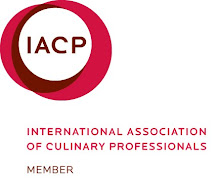It's hard to believe that for twenty euros we purchased all the fruit and vegetables we need for the coming week and gorgeous, almost all organic, at that. We're in that enviable moment of the season when we still have a lot of summer fruits available but are starting to see some fall and winter produce appearing too.
Figs are one of my favorite fruits. Although they aren't available most of the year they are available twice: mid-summer and then again in September. The September figs are appropriately known as settembrini. We eat the figs whole; the purple figs are sugar sweet and the green ones less so but both kinds are delicious.
The woman we purchase from at the Saturday outdoor market in Prima Porta grows a lot of the produce herself. The grapes we purchased are from her vines and are even sweeter than the purple figs. This month is the vendemmia and all grapes are ripe for the picking.
Peaches and plums are still selectively available; the peaches come from cooler areas of Italy where the peach season is slightly later.
Bitter greens are our favorite and a favorite of most Italians: arugula as an addition to salad; cicoria pan sauteed with olive oil, garlic and hot pepper.
Fresh borlotti and cannellini beans are now available. It's time-consuming to remove them from their pods, but well worth the effort. As I remove borlotti beans from their pods I'm continually struck by their beauty; the pods and the beans look like they have been hand-painted.
We prepare a mixture of finely minced red onion and fresh sage, olive oil and balsamic vinegar and once the beans are cooked mix them piping hot into the sauce. The heat of the beans slightly cooks and amalgamates with the other ingredients, producing a surprisingly tasty side dish. Recently we've been making this dish a lot in our cooking classes and it's usually the favorite dish.
One of my favorite things about going to the market is the complimentary odori that are given to you when you make your purchase. Odori are a handful of herbs: parsley, basil, a carrot, celery stock and sometimes a small onion. These are the basic ingredients needed to make a vegetable broth or to season other dishes. It's a nice little added touch to the market experience.















